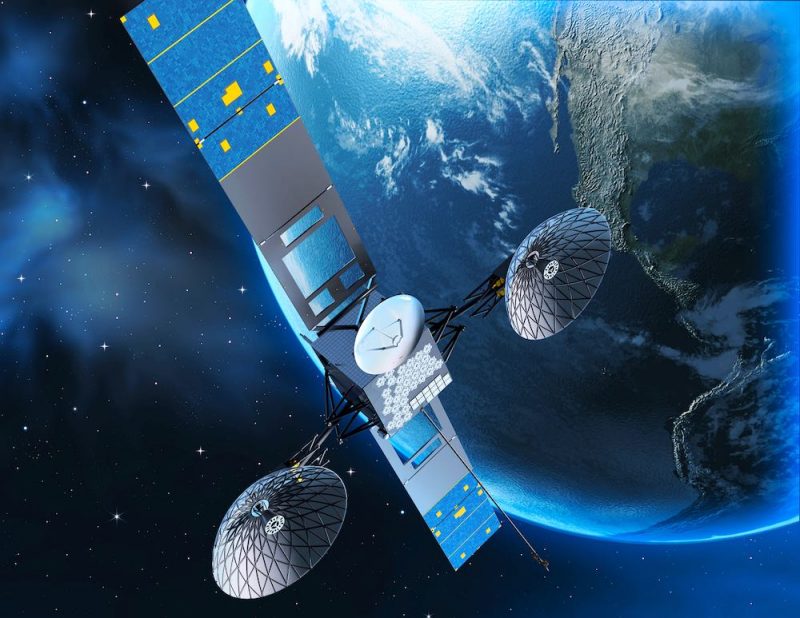Radio Waves: Stories Making Waves in the World of Radio
Because I keep my ear to the waves, as well as receive many tips from others who do the same, I find myself privy to radio-related stories that might interest SWLing Post readers. To that end: Welcome to the SWLing Post’s Radio Waves, a collection of links to interesting stories making waves in the world of radio. Enjoy!
Many thanks to SWLing Post contributors BJ Leiderman, London Shortwave, and Michael Bird for the following tips:
Hacker Used £270 of TV Equipment to Eavesdrop on Sensitive Satellite Communications (CBRonline.com)
“Vulnerable systems administration pages and FTP servers were publicly routable from the open internet.
An Oxford University-based security researcher says he used £270 ($300) of home television equipment to capture terabytes of real-world satellite traffic — including sensitive data from “some of the world’s largest organisations.”
James Pavur, a Rhodes Scholar and DPhil student at Oxford, will detail the attack in a session at the Black Hat security conference in early August.
Pavur will also demonstrate that, “under the right conditions” attackers can hijack active sessions via satellite link, a session overview reveals.
The news comes as the number of satellites in orbit is expected to increase from approximately 2,000 today to more than 15,000 by 2030. (Elon Musk’s SpaceX alone has permission to launch 12,000 satellites.)[…]
A close-knit culture, with separation at its core (Christian Science Monitor)
Ham radio operators are a global collective with a common aim: to forge human connections in an expanding network. As COVID-19 makes us all ‘distance,’ we wanted to tune in to their world.
You’re logged in, the Zoom meeting underway, and suddenly faces freeze. The best you can do: Reboot the router and cross your fingers. You’re on the phone with a friend, deep in conversation, and the audio gets garbled as the bars on your phone drop from one to none. Technology can fail us at inconvenient times. But imagine a communications technology that could hold up even in the most rugged and remote situations.
It exists, and it’s much older than the smartphone.
Amateur radio, or ham radio, has been around for more than a century, functioning as both workhorse and recreational hobby. After the Boston Marathon bombing in 2013, amateur operators coordinated communications as cellphone systems became overloaded. They played a key role in Puerto Rico in 2017 after Hurricane Maria took down much of the communications infrastructure. Though there hasn’t been as much of a need during the pandemic – with traditional systems up and running – amateur radio is keeping its own user communities in touch, informed, and emotionally grounded.[…]
Australia criticised for TV drama diplomacy (Radio New Zealand)
[Listen to full interview above or at RNZ.]
Australia has been told it should not send low-brow TV dramas and reality shows to the Pacific, but find out what the region really wants.
Canberra has announced plans to stream television content to the Pacific as part of efforts to promote Australia’s relationship with the region, and to counter Chinese influence.
But a spokesperson for advocacy group, Australia Asia Pacific Media Initiative, Sue Ahearn, says sending programmes like Neighbours, Border Force is not the answer.
She believes Australia could provide a much greater service for the Pacific.[…]
Update: Licensing drive-in movies and church services (Southgate ARC)
Drive-in movie and church service event organisers could be granted temporary radio licences by Ofcom, which may allow film lovers and congregations to come together while still observing social distancing.
Ofcom has today updated its licensing information to offer guidance to individuals or organisations who may wish to hold these types of events. They require a ‘restricted service licence’ from Ofcom, so that people in their cars can hear the film soundtrack, or what is being said, on their FM car radios.
Given the current coronavirus pandemic, we are waiving the usual 60-day notice period for licence applications. We will also process applications quickly, with the aim of providing an answer to applicants within two weeks of it being received.
We recognise that these events may be a way for communities and congregations to enjoy a film or to worship, while still observing social distancing. In granting any licence, however, we are not authorising the event itself. It is for licensees to ensure that any events are permissible under Covid-19-related laws and guidance.
More information, including on how to apply for a restricted service licence, is available.
Licensing information […]
Do you enjoy the SWLing Post?
Please consider supporting us via Patreon or our Coffee Fund!
Your support makes articles like this one possible. Thank you!


